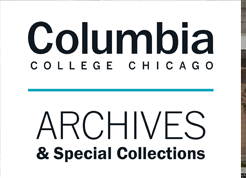Document Type
Article
Loading...
Publication Date
Spring 2009
Keywords
Vietnam War, Martin Luther King Jr., University of Notre Dame, Students for a Democratic Society (U.S.), Students, Political activity, Rhode Island School of Design, New York Women's School, Pan African Congress, Madame Binh Graphics Collective, Zimbabwe, Namibia, Springboks (Rugby team), Marcus Garvey, Rikers Island (N.Y.), Black Liberation Army, African National Congress, Puerto Rican Cultural Center
Disciplines
Political Science | Political Theory | Race and Ethnicity | Race, Ethnicity and Post-Colonial Studies | Work, Economy and Organizations
Abstract
Length: 91 minutes
Oral history interview of Mary Patten by Blair Allen Mishleau
Mary Patten talks about her experiences during the 1960s and how the assassination of both Martin Luther King Jr. and Robert F. Kennedy contributed to her consciousness. She describes wanting to be in the fight for equality at an early age by remembering her mother not letting go of her hand during to a protest during that time. Patten then describes the environment of her college education and its effect on her activism and her beliefs in equality. She mentions her role in Students for a Democratic Society (SDS) and elaborates on how the organization was structured. Patten explains the extremes of that activism world in the SDS and how she transferred schools. Patten recaps how the South African Apartheid government was brought to her attention and the reaction she had, such as joining a group at New York Women’s School, and being on various political prisoner defense committees. She describes her involvement with a graphic collective group, Madame Binh Graphic Collection, where she was part of many different activist organizations all fighting in different ways for the Anti-apartheid movement. Patten mentions the protest surrounding the Springboks, South Africa’s rugby team, and how other countries fought against the presence of the South African Apartheid government at the games. She recounts her the details from her protest that resulted in a court case and time in the Rikers Island prison in New York.
Recommended Citation
Mishleau, Blair Allen. "Interview with Mary Patten" (Spring 2009). Oral Histories, Chicago Anti-Apartheid Collection, College Archives & Special Collections, Columbia College Chicago. http://digitalcommons.colum.edu/cadc_caam_oralhistories/22
Creative Commons License

This work is licensed under a Creative Commons Attribution-NonCommercial-No Derivative Works 4.0 International License.
Included in
Political Theory Commons, Race and Ethnicity Commons, Race, Ethnicity and Post-Colonial Studies Commons, Work, Economy and Organizations Commons



Biography and Comments
Mary Patten was born in 1951 in Evanston, Illinois. She graduated from Holy Child Jesus High School in 1968, where her main interest was art. She went on to St. Mary’s College, transferred to Rhode Island School of Design, and completed her undergraduate degree at Kansas City Art Institute in 1973. Patten joined the Students for a Democratic Society (SDS) during her last years at St Mary’s College, protesting officials and representatives of the South African government. She was involved in a graphics collective, in which she helped produce propaganda work against the Apartheid government. Her anti-apartheid activism during the Springbok soccer team visit to the United States landed her in prison for a year. After moving to Chicago, she continued her activism and political works, getting involved in the Puerto Rican Cultural Center in Chicago, Act Up Chicago, and the AIDS activist movement.
The interviewer conducted this oral history as part of his/her coursework for the Spring 2009 class, Oral History: The Art of the Interview. This interview supports the scope and content of the Chicago Anti-Apartheid Movement Collection at the College Archives & Special Collections department of Columbia College Chicago. Contact archives@colum.edu for more information and to view the collection.